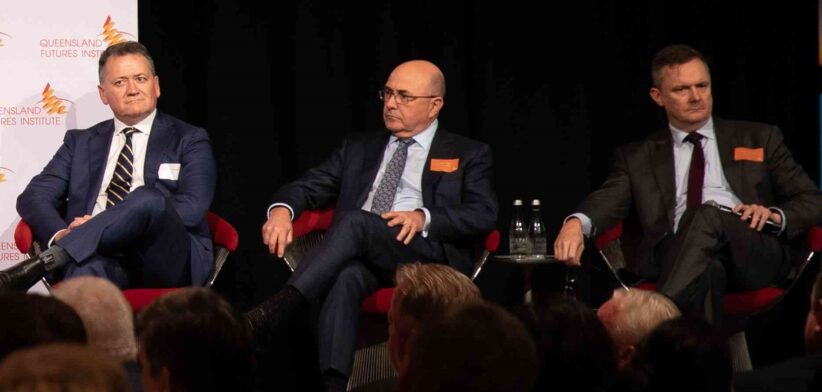Mortgage defaults are lower than pre-COVID levels despite the pressure of rapid interest rates rises, banking chiefs have told the Queensland Futures Institute 2024 Finance Summit.
ANZ Group General Manager for Communications and Public Affairs Tony Warren said most people with mortgages remained in a “relatively decent financial position.”
This was despite going through the largest interest rates rises in the shortest period of time in living memory.
“The increase has been quite extreme,” Dr Warren said. “And yet if we look at our (mortgage) book (based on 90-day plus overdue mortgages) we’re at levels that are still substantially below where they were pre-COVID.”
Dr Warren said people caught on the rental treadmill were the ones “really feeling it”.
Traditionally renters had to devote less than 30 percent of their income on average to their rent. This was now at 32 percent in Brisbane and 36 percent in regional Australia.
People First Bank CEO Peter Lock told the forum that his bank was seeing a similar level of customer resilience to interest rate rises.
He said payment defaults had not seen the lift that you might expect with the level of interest rate rises in recent years.
However, he said there was pressure coming on savings and it would not take much more pressure for that situation to change, particularly if employment fell.
Suncorp Group CEO Steve Johnston agreed with the assessment.
He said, if you looked at banking and insurance figures without any context around what was happening in the Australian economy, you would think there was “nothing really going on in the economy”.
The QFI Finance Summit, held at the Hilton in Brisbane last Friday, also highlighted the growing concern around scams in the finance industry.
Mr Johnston said this may require a scaling back of high spend money transfers (so-called frictionless banking).
“Everyone wanted to be able to transfer money like that (instantly),” he said. “We spent a lot of money putting all those systems in place to do that. Then what do you know, scammer come along and it’s gone before we can do anything about it.
“This is not a customer-friendly approach but in the short term I think we’re going to have to put friction back in the process. We’re going to have to slow it down because it’s gone to crypto before we can even take a phone call.”
Dr Warren described the growing scam threat as an “arms race”.
He said banks were having to put more funds and more people into helping customers perform the tasks they wanted online while stopping scammers from infiltrating systems.








